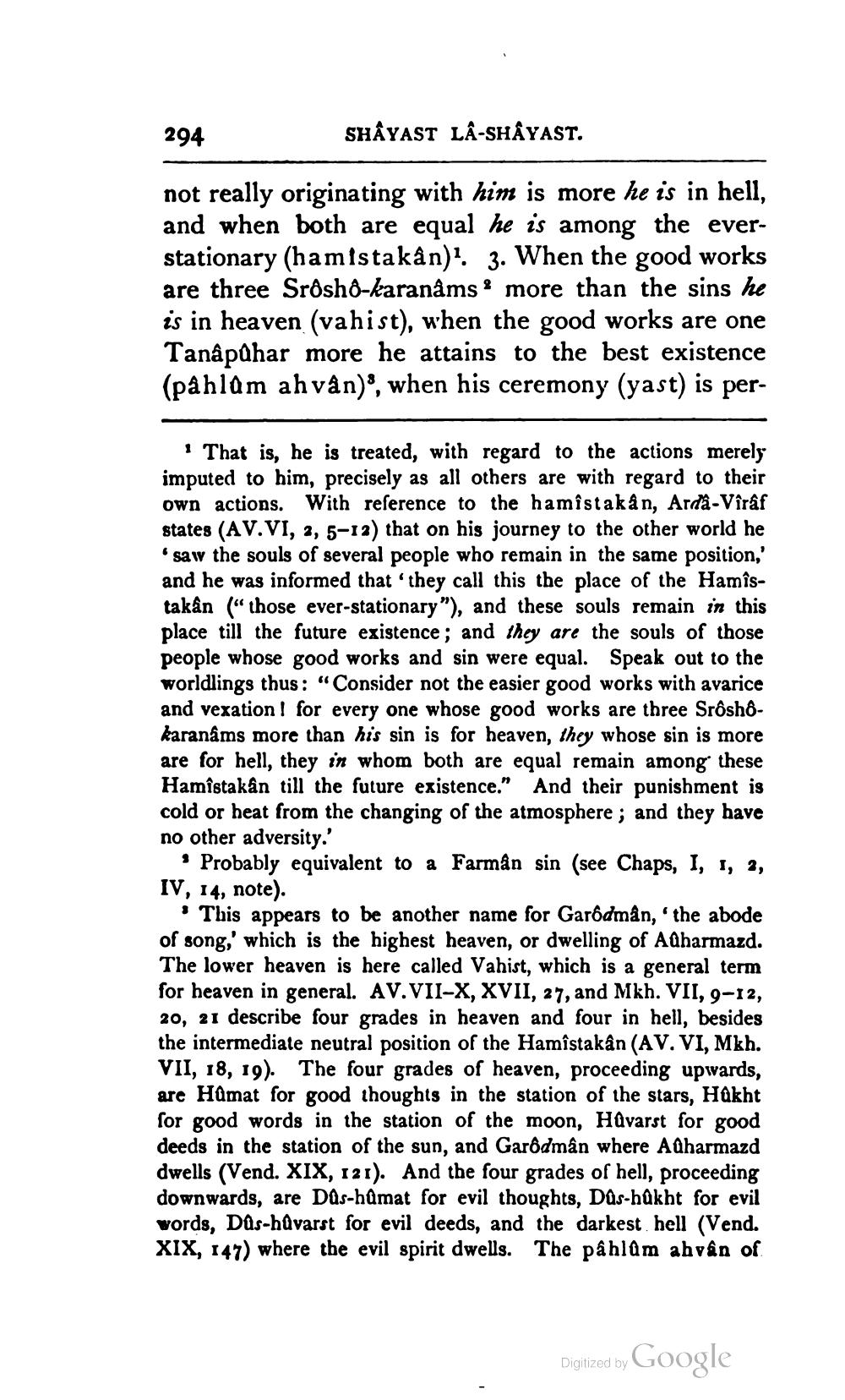________________
294
SHẦYAST LÂ-SHẤYAST.
not really originating with him is more he is in hell, and when both are equal he is among the everstationary (hamistakån). 3. When the good works are three Srðshó-karanáms? more than the sins he is in heaven (vahist), when the good works are one Tanâpahar more he attains to the best existence (pahlam ah vân)', when his ceremony (yast) is per
1 That is, he is treated, with regard to the actions merely imputed to him, precisely as all others are with regard to their own actions. With reference to the hamîstakan, Arda-Vîraf states (AV.VI, 2, 5-12) that on his journey to the other world he
saw the souls of several people who remain in the same position,' and he was informed that they call this the place of the Hamîstakân (“those ever-stationary"), and these souls remain in this place till the future existence; and they are the souls of those people whose good works and sin were equal. Speak out to the worldlings thus: “Consider not the easier good works with avarice and vexation! for every one whose good works are three Srôshokaranâms more than his sin is for heaven, they whose sin is more are for hell, they in whom both are equal remain among these Hamîstakan till the future existence." And their punishment is cold or heat from the changing of the atmosphere ; and they have no other adversity.'
• Probably equivalent to a Farmån sin (see Chaps, I, 1, 2, IV, 14, note).
This appears to be another name for Garôdmân,' the abode of song,' which is the highest heaven, or dwelling of Adharmazd. The lower heaven is here called Vahist, which is a general term for heaven in general. AV.VII-X, XVII, 27, and Mkh. VII, 9-12, 20, 21 describe four grades in heaven and four in hell, besides the intermediate neutral position of the Hamîstakân (AV. VI, Mkh. VII, 18, 19). The four grades of heaven, proceeding upwards, are Humat for good thoughts in the station of the stars, HÄkht for good words in the station of the moon, Hüvarst for good deeds in the station of the sun, and Garôdmân where Adharmazd dwells (Vend. XIX, 121). And the four grades of hell, proceeding downwards, are Das-hQmat for evil thoughts, Dus-hûkht for evil vords, Düs-hůvarst for evil deeds, and the darkest hell (Vend. XIX, 147) where the evil spirit dwells. The pahlam ahven of
Digitized by Google




